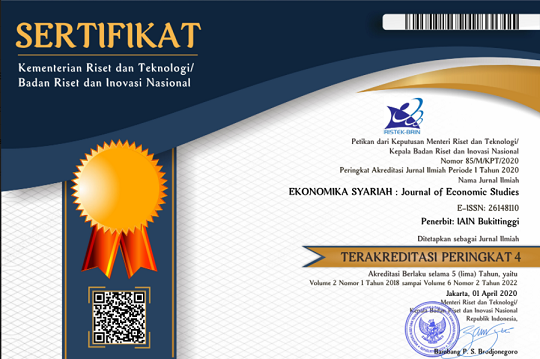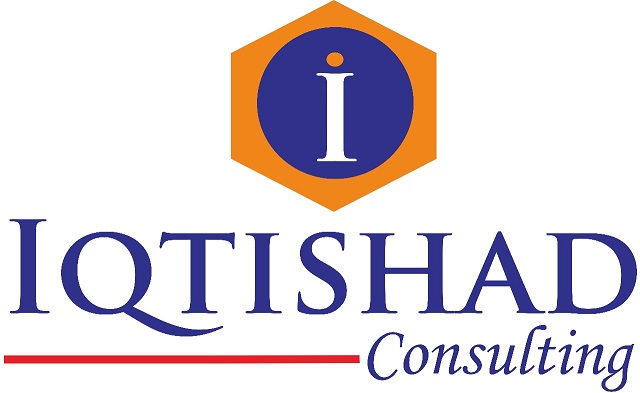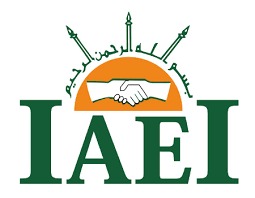The Effect of Cash Waqf Literacy on Cash Waqf Decision with Interest in Waqf as a Mediating Variable
DOI:
https://doi.org/10.30983/es.v7i2.7535Keywords:
Cash Waqf, Literacy, Decision, InterestAbstract
Penelitian ini bertujuan untuk mengetahui pengaruh literasi wakaf tunai terhadap keputusan berwakaf tunai pegawai  Kementerian Agama Provinsi Sumatera Barat dengan minat wakaf sebagai variabel mediasi. Sumber data dalam penelitian adalah pegawai Kantor Kementerian Agama Wilayah Provinsi Sumater Barat. Data dikumpulkan dengan menyebarkan kuesioner. Analisis data dilakukan dengan analisis regresi linear sederhana dan uji analisis jalur. Hasil penelitian menunjukkan bahwa literasi wakaf tunai berpengaruh secara signifikan terhadap minat berwakaf. Artinya semakin tinggi tingkat literasi wak literasi wakaf tunai secara tidak langsung berpengaruh terhadap keputusan berwakaf tunai. Kemudian hasil penelitian ini juga membuktikan minat berwakaf berpengaruh secara signifikan terhadap keputusan berwakaf tunai pegawai  Kementerian Agama Provinsi Sumatera Barat. Selanjutnya berdasarkan uji analisis jalur membuktikan bahwa terdapat pengaruh mediasi dari minat berwakaf antara literasi wakaf tunai terhadap keputusan berwakaf tunai.
This study aims to determine the effect of cash waqf literacy on cash waqf decision with interest in waqf as a mediating variable of employees of the Ministry of Religion of West Sumatra Province. The data source in this research is employees of the Ministry of Religion of West Sumatra Province. Data was collected by distributing questionnaires. Data analysis was performed by simple linear regression analysis and path analysis test. The results of the study show that cash waqf literacy has a significant effect on interest in waqf. This means that the higher the literacy level of cash waqf the higher the interest in cash waqf employees of the Ministry of Religion of West Sumatra Province, and cash waqf literacy indirectly affects the cash waqf decision. The results of this study also prove that interest in waqf has a significant effect on cash waqf decision for employees of the Ministry of Religion of West Sumatra Province. Furthermore, based on the path analysis test, it proves that there is a mediating effect of waqf interest between cash waqf literacy and cash waqf decision.een cash waqf literacy and cash waqf decision.
References
Adistii, D., Susilowati, D., & Ulfah, P. (2021). Peran Akuntabilitas sebagai Moderasi Hubungan Religiusitas dan Literasi Wakaf terhadap Minat Berwakaf Uang. Reviu Akuntansi Dan Bisnis Indonesia, 5(2), 122–137.
Amalia, A. N., & Puspita, P. (2018). Minat masyarakat Jakarta dalam berwakaf uang pada lembaga wakaf. Syiar Iqtishadi: Journal of Islamic Economics, Finance and Banking, 2(2), 1–19.
Anwar, M. K. (2019). Hubungan pendapatan dan sikap masyarakat muslim kecamatan semampir Surabaya dengan minat membayar wakaf uang. Jurnal Ekonomika Dan Bisnis Islam, 2(2), 136–148.
Armstrong, G., Adam, S., Denize, S., & Kotler, P. (2014). Principles of marketing. Pearson Australia.
Azrai Azaimi Ambrose, A. H., & Abdullah Asuhaimi, F. (2021). Cash waqf risk management and perpetuity restriction conundrum. ISRA International Journal of Islamic Finance, 13(2), 162–176.
Baskoroputra, G. F. (2019). Analisa tingkat literasi wakaf uang dan pengaruhnya pada persepsi wakaf uang (Studi kasus pada mahasiswa Ekonomi Islam Universitas Brawijaya). Jurnal Ilmiah Mahasiswa FEB, 7(2).
Basyirah, L., Hapsara, O., & Hamidah, S. (2023). KONSEP BISNIS ISLAM. Mafy Media Literasi Indonesia.
BWI, H. (2019). Menelisik Manfaat Potensi Wakaf Uang untuk Bantu Kaum Dhuafa. https://www.bwi.go.id/5926/2021/02/05/menelisik-manfaat-potensi-wakaf-uang-untuk-bantu-kaum-dhuafa/
Clark, G. (1996). Massachusetts Institute of Technology and the editors of The Journal of Interdisciplinary History and Weingast argue that the political history of England in the Revolution illustrates two important of secure and stable cite England during the seventeenth. The Journal of Interdisciplinary History, 26(4), 563–588.
Cupian, C., & Najmi, N. (2020). Analisis faktor-faktor yang memengaruhi persepsi masyarakat terhadap wakaf uang di kota Bandung. Jurnal Ilmiah Ekonomi Islam, 6(2), 151–162.
Falahuddin, F., Fuadi, F., & Ramadhan, M. R. (2019). Faktor-faktor yang mempengaruhi minat wakaf masyarakat di kota Lhokseumawe. Jurnal Emt Kita, 3(2), 81–84.
Fatkhan, F., & Anwar, M. K. (2022). Pengaruh literasi dan pendapatan terhadap keputusan berwakaf uang melalui LKS-PWU di Kota Surabaya. Fair Value: Jurnal Ilmiah Akuntansi Dan Keuangan, 5(1), 141–149.
Fauziah, S., & El Ayyubi, S. (2019). Faktor-faktor yang memengaruhi persepsi wakif terhadap wakaf uang di Kota Bogor. Al-Muzara’ah, 7(1), 19–31.
Ghanny, A. R., & Fatwa, N. (2021). Indeks Literasi Wakaf Generasi Milenial. Jurnal Tabarru’: Islamic Banking and Finance, 4(1), 253–262.
Hairunnisa, D., Senjiati, I. H., & Hidayat, Y. R. (2020). Pengaruh Persepsi Jemaah Masjid Daarut Tauhiid Bandung terhadap Minat Wakaf Uang di Wakaf Daarut Tauhiid. Prosiding Hukum Ekonomi Syariah, 6(2), 625–631.
Hansson, S. O. (2005). Decision theory: A brief introduction.
Hayati, A. K., Senjati, I. H., & Hidayat, Y. R. (2020). Pengaruh literasi terhadap minat wali santri kuttab Al-Fatih Bandung berwakaf melalui uang. Prosiding Hukum Ekonomi Syariah, 6(2), 455–460.
Hermawan, S., & Amirullah, A. (2016). Metode penelitian bisnis pendekatan kuantitatif & kualitatif. Media Nusa Creative.
Hidayah, N., Mutiara, T., Hosen, M. N., Larasati, D., & Wahab, A. (2023). Public perception of the revitalization of Indonesian Waqf Institution. EKONOMIKA SYARIAH: Journal of Economic Studies, 7(1), 72–85.
Hidayatullah, M. S. (2022). Pengaruh Literasi Dan Tingkat Religiusitas Terhadap Minat Berwakaf Uang (Studi Kasus: Masyarakat Kabupaten Bima). Al-Awqaf: Jurnal Wakaf Dan Ekonomi Islam, 15(2), 61–77.
Hidayatur, R. (2018). pengaruh strategi penggalangan wakaf tunai dan religiusitas terhadap minat masyarakat untuk berwakaf pada pengelolaan wakaf ranting muhammadiyah kertosari kabupaten ponorogo tahun 2018. IAIN Ponorogo.
Hiyanti, H., Afiyana, I. F., & Fazriah, S. (2020). Potensi dan realisasi wakaf uang di Indonesia Tahun 2014-2018. Jurnal Ilmiah Manajemen, Ekonomi, & Akuntansi (MEA), 4(1), 77–84.
Hiyanti, H., Fitrijanti, T., & Sukmadilaga, C. (2020). Pengaruh Literasi dan Religiusitas Terhadap Intensi Berwakaf pada Cash Waqf Linked Sukuk. Jurnal Ilmiah Manajemen, Ekonomi, & Akuntansi (MEA), 4(3), 493–507.
Iman, N., Santoso, A., & Kurniawan, E. (2021). Wakif’s behavior in money waqf: An approach to theory of planned behavior. Ekuilibrium: Jurnal Ilmiah Bidang Ilmu Ekonomi, 16(1), 12–23.
Iqbal, M., Nadya, P. S., Saripudin, S., & Hadiyati, P. (2019). Increasing community awareness and intention in encouraging the growth of cash waqf. Economica: Jurnal Ekonomi Islam, 10(1), 29–56.
Ismawati, Y., & Anwar, M. K. (2019). Pengaruh persepsi masyarakat tentang wakaf uang terhadap minat berwakaf uang di Kota Surabaya. Jurnal Ekonomi Islam, 2(3), 129–138.
Kotler, P., & Keller, K. L. (2009). Manajemen pemasaran. edisi.
Lamido, A. A., & Haneef, M. A. (2021). Shifting the paradigms in waqf economics: towards renewed focus on socioeconomic development. Islamic Economic Studies, 29(1), 18–32.
Lubis, H., Hasanah, N., & Khairunisa, M. (2023). Influence Wakif’s Understanding and Income of Interest in Waqf in PW. Salimah Riau Province. Al-Kharaj: Journal of Islamic Economic and Business, 5(1).
Maarif, N. N. (2017). Kepercayaan kepada Manajer Waqf: Sebuah Kajian tentang Teori Pengambilan Keputusan Wakaf. JURNAL INDO-ISLAMIKA, 7(1), 85–114.
Machmud, A. I., & Suryaningsih, S. A. (2020). Analisis Tingkat Literasi Wakaf Uang Mahasiswa Fakultas Ekonomi Universitas Negeri Surabaya. Jurnal Ekonomika Dan Bisnis Islam, 3(3), 165–179.
Mohamad, M. (2015). A Study on Consumer Decision Making of Canned Foods Purchases in Seri Iskandar Influenced by Packaging. GRIN Verlag.
Muthiah, L. M. B., & Saptono, I. T. (2021). Cash Waqf Literacy Index and Determinants of Public Intention to Pay Cash Waqf. International Journal of Research and Review, 8, 12.
Nour Aldeen, K., Ratih, I. S., & Sari Pertiwi, R. (2022). Cash waqf from the millennials’ perspective: a case of Indonesia. ISRA International Journal of Islamic Finance, 14(1), 20–37.
Nurjanah, S., & Hasanah, U. (2021). Cash Waqf As Source Of Funding For Financial Technology Startups. International Journal of Islamic Economics, 3(01), 47–70.
Oyegoke, E. O., & Aras, O. N. (2021). Impact of Foreign Direct Investment on Economic Growth in Nigeria. Journal of Management, Economics, and Industrial Organization, 108348, 31–38. https://doi.org/10.31039/jomeino.2021.5.1.2
Pulungan, D. R. (2017). Literasi keuangan dan dampaknya terhadap perilaku keuangan masyarakat kota medan. Jurnal Ekonomikawan, 17(1), 56–61.
Putri, E. D., & Yusrani, Y. D. (2022). Peranan Zakat, Infak Dan Sedekah (ZIS) Dalam Upaya Meningkatkan Perekonomian Di Kecamatan Jatiroto. Muhasabatuna: Jurnal Akuntansi Syariah, 1(2), 51–58.
Rasela, F. (2022). Pengaruh literasi wakaf terhadap minat mahasiswa berwakaf pada forum wakaf mahasiswa Indonesia. Jurnal Riset Perbankan Syariah, 69–76.
Rohman, A. A. (2021). Pengaruh Religiusitas, Pengetahuan, Perspesi, Pendapatan, dan Media Infromasi terhadap Minat Wakaf Uang Masyarakat Kota Bandung. Jurnal Riset Ilmu Ekonomi Dan Bisnis, 136–144.
Rositanti, M., & Hasanah, N. (2022). Hal-Hal yang Memengaruhi Keputusan Wakif untuk Berwakaf Uang di Kabupaten Purworejo. AL-MUZARA’AH, 10(1), 59–78.
Rozalinda, R. (2019). Fikih Ekonomi Syariah: Prinsip Dan Implikasinya Pada Sektor Keuangan Syariah. Rajawali Pers.
Saiti, B., Salad, A. J., & Bulut, M. (2019). The role of cash waqf in poverty reduction: a multi-country case study. Management of Shari’ah Compliant Businesses: Case Studies on Creation of Sustainable Value, 21–34.
Santika, M. (2021). Analisis Peningkatan Literasi Wakaf Uang Pada Masyarakat Di Aceh Tamiang. JIMAWA: Jurnal Ilmiah, 1(2).
Sugiyono. (2018). Metode Penelitian Kuantitatif,Kualitatif dan R&D. In ke-26.
ULUM, M. I. (2022). Pengaruh Literasi Wakaf, Religiusitas, Opinion Leader Terhadap Minat Berwakaf Tunai Dengan Transparansi Sebagai Variabel Moderasi.
Wulandari, S., Effendi, J., & Saptono, I. T. (2019). Pemilihan Nazhir Dalam Optimalisasi Pengelolaan Wakaf Uang. Jurnal Aplikasi Bisnis Dan Manajemen (JABM), 5(2), 295.
Yuliana, I., & Hadi, S. P. (2019). Model Penerapan dan Potensi wakaf saham di Indonesia. Jurnal Perspektif Ekonomi Darussalam (Darussalam Journal of Economic Perspec, 5(2), 227–239.
Yzer, M. C. (2013). Reasoned action theory. The SAGE Handbook of Persuasion: Developments in Theory and Practice, 2, 120–136.
Downloads
Published
How to Cite
Issue
Section
Citation Check
License
Copyright (c) 2023 Rozalinda Rozalinda Rozalinda, Nila Mardiah, Celya Pratama

This work is licensed under a Creative Commons Attribution-ShareAlike 4.0 International License.
Authors who publish with this journal agree to the following terms:
- Authors retain copyright and grant the journal right of first publication with the work simultaneously licensed under a Creative Commons Attribution-ShareAlike 4.0 International License that allows others to share the work with an acknowledgment of the work's authorship and initial publication in this journal.
- Authors are able to enter into separate, additional contractual arrangements for the non-exclusive distribution of the journal's published version of the work (e.g., post it to an institutional repository or publish it in a book), with an acknowledgment of its initial publication in this journal.
- Authors are permitted and encouraged to post their work online (e.g., in institutional repositories or on their website) prior to and during the submission process, as it can lead to productive exchanges, as well as earlier and greater citation of published work (See The Effect of Open Access).




